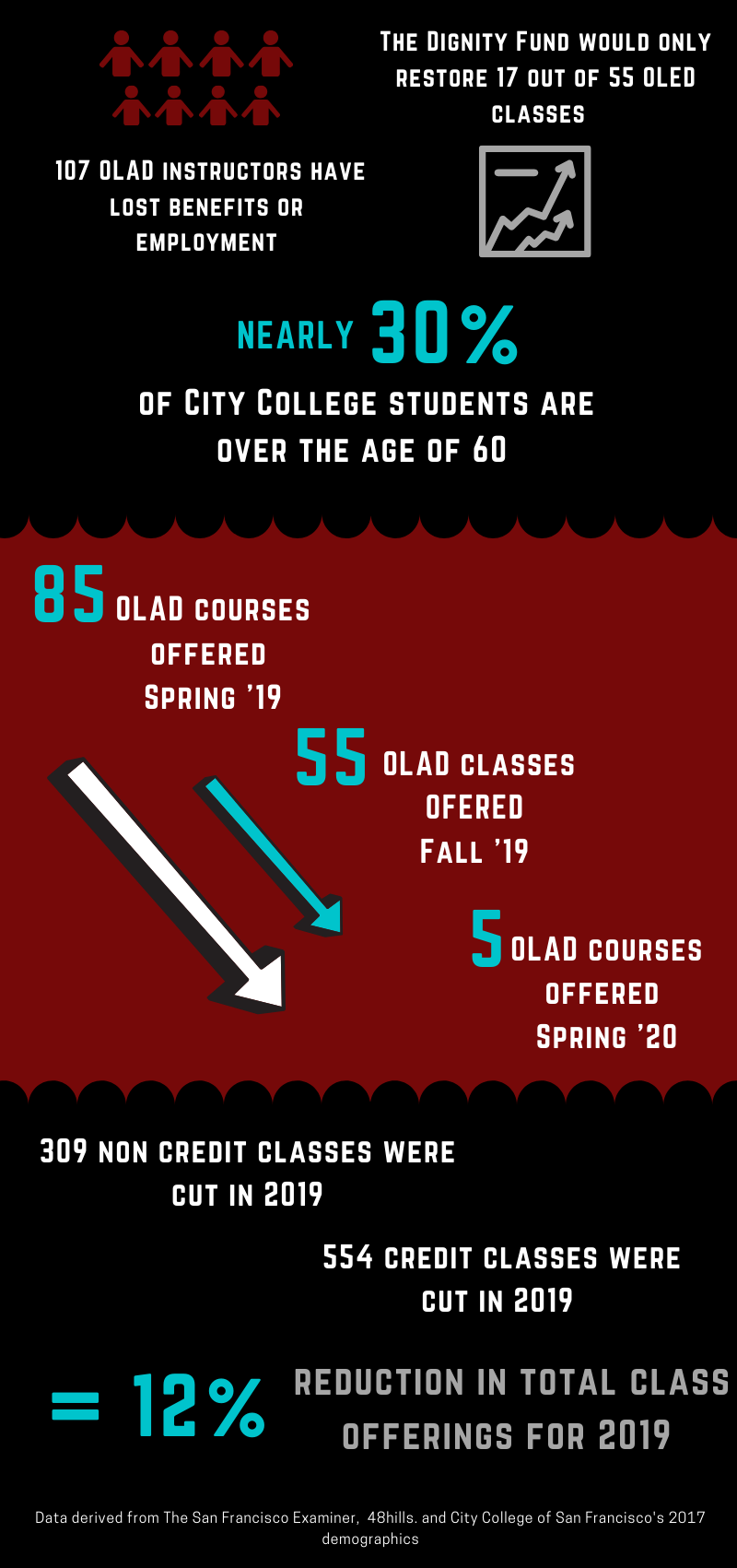AFT2121 Decries Proposal to Outsource Older Adult Courses
By Caoilinn Goss
City College’s Faculty Union (AFT Local 2121) and many older adult students oppose Mayor London Breed and several city supervisors proposal to restore 17 of the 50 courses cut in November through partnership with non profits.
The proposal would allocate $216,000 annually from the city’s Dignity Fund to fund courses that serve an estimated 1,000 students.

Union busting?
Jenny Worley, president of AFT 2121, spoke out against what appears to be the defunding of public education in favor of private institutions.
“We have created these programs, we have the infrastructure and the experience to run them,” Worley told SF Weekly when Mayor Breed first announced the plan.
The courses would no longer be administered by the college, but by the individual non profits themselves, including Self Help for the Elderly, the Jewish Community Center, and YMCA Stonestown.
The proposal does not provide assurances for the faculty whose classes have been cut.
“The teachers are not being represented by a union, they don’t have a contract,” said Wynd Kaufmyn, Vice President of AFT 2121 and an engineering instructor at City College. “They’re going to have to buy their own liability insurance. They’re going to be making a lot less money and they’re not going to be accumulating toward their retirement. It’s just straight up union busting. It’s egregious.”
State Funding or Ageism?
To many, the restructuring indicates what Peter Warfield, an older adult student and vocal organizer with Equity for Older Students, described as a “tug of war over what City College is for.”
In December, Supervisor Shamann Walton proposed allocating $2.7 million from the city’s General to comprehensively restore all the cut classes, yet Chancellor Mark Rocha does not support that proposal, claiming that the class cuts are part of a longer term plan to reshape the college and promote higher graduation rates.
“As a College, our number one priority is graduating students, especially students of color,” Rocha stated in a Dec. 16 SF Examiner letter to the editor. “We are here to ensure that our students can continue to take the classes they need to complete their degrees, transfer to four-year universities or complete their certificates for employment.”
Warfield believes this shift from a community resource to a junior college smacks of ageism.
“The Chancellor is appearing to pit the older adults wanting their classes to continue against young students of color needing to graduate,” Warfield said. “To set one group against another is a really ugly thing to suggest.”
Kaufmyn pointed to a larger systemic reason for the Chancellor’s prioritization of degree-seeking students.
“This is coming down from the state. It’s the so-called Student Centered Funding Formula. This formula is different than the previous type of funding, which was really just based on enrollments. But now, they’re also going to consider how many people are graduating, how many certificates we get, and there’s other metrics that really disadvantage an urban, diverse community college,” Kaufmyn said.
The Student Centered Funding Formula passed in the summer of 2018 and has resulted in budget slashes for community colleges across the state.
“We as a community college have a much broader mission than that, and the state’s not going to fund it,” Kaufmyn said. “We need the city to fund it.”
